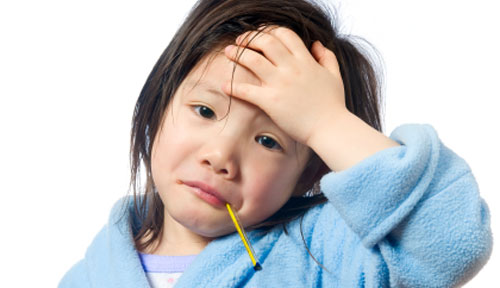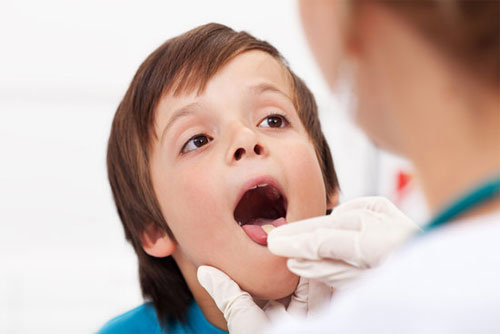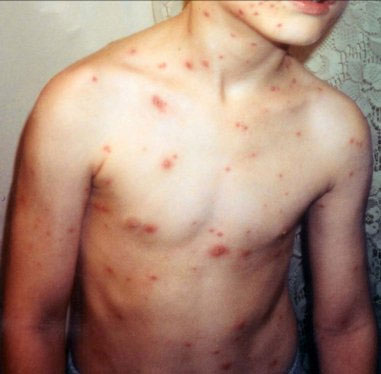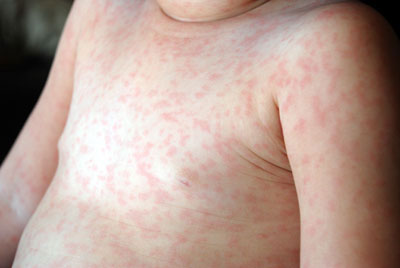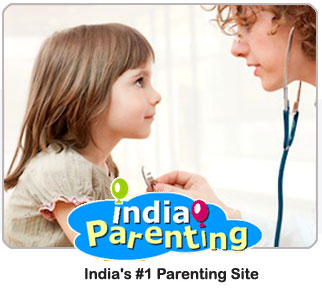Convulsions which are also known as elliptic attacks, seizures or fits can also affect children. When children are affected with it, they may become unconscious. Read on to learn more about convulsions in children.Children may become unconscious and fall down and their eyes may roll back in head when they are affected with convulsion. In such cases it is necessary to take the child to the doctor immediately. Let us take a look at the causes and symptoms of convulsions and some ways to treat it.
What causes convulsions?
It is difficult to say what the exact cause of
convulsions is. In most children aged between one and three years, convulsions are often linked to the development of a high
fever. The child's nervous system is immature and often cannot handle a high temperature the same way that an adult does. Thus, sometimes, the fever stimulates the nerves controlling the muscles and these, in turn, contract violently. Remember that febrile convulsions are not as frightening as they look.
What happens when a child has convulsions?
Convulsions due to fever usually only last a minute or two. When your child has a fit, she will probably lose consciousness and begin to twitch uncontrollably. She will clamp her jaws shut tightly and breathe heavily. Her eyes will roll back into her head and she will froth at the mouth. She may even become incontinent. Children usually fall asleep after the convulsions have passed.
What do I do when my child has a fit?
Do not panic and rush off to call for help. It is more important not to leave your child alone as she may inhale her vomit if she is sick. To prevent this from happening, place her on her stomach with her head to one side. Do not try to restrain her in any way. Try to keep her away from objects and furniture against which she may injure herself. It is a myth that people bite or swallow their tongues during a convulsion. You will do more harm attempting to prise open your child's jaws during a convulsion. Do not try to feed her or place anything in her mouth.
How to prevent convulsions in children?
There is no way in which convulsions can be prevented. Although, there is no particular way in which convulsions can be avoided, parents must try to bring down the temperature of child by giving medicines that are prescribed by a
paediatrician for controlling fever. Parents must also help the child be comfortable when she is coping with fever. In case if the child is coping with seizures due to fever frequently (febrile seizures) her paediatrician may refer you to a paediatric neurologist. A paediatric neurologist may in a very rare case opt to treat the condition using anticonvulsants that are required to be taken for particular number of years so that convulsions are prevented. In case if the child is getting convulsions due to some other reason (non-febrile convulsions) then the prevention measures will be suggested after the diagnosis of the cause.
What are the treatments for convulsions in children?
Children coping with convulsions are treated differently as compared to the adults. Medicines are not given immediately when a child experiences the convulsion for the first time. Medicines are avoided as they may harm child’s liver or may show some other side-effects.
Initially, while treating the child, doctor first makes sure if the child has actually coped with a convulsion or it is some other illness. It is very rare for children to experience convulsions frequently. Mostly, children may experience one or a couple of convulsions and after that they may not experience it at all. In rare case if the child experiences a convulsion that lasts for more than five minutes (status epilepticus) than child is hospitalized in an intensive care unit where she may be kept under complete observation and may be treated using anticonvulsants with complete caution. A ventilator may also be used to help the child breath properly.












